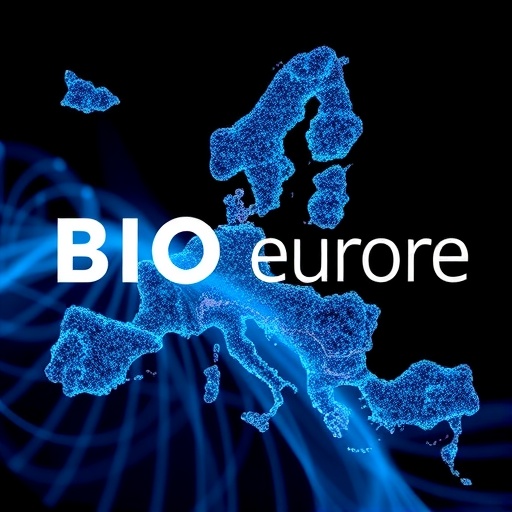In the rapidly evolving field of drug discovery, Insilico Medicine is pushing the boundaries by harnessing the power of generative artificial intelligence to transform the development of novel therapeutics. The company recently announced its active participation in the prestigious BIO-Europe 2025 conference, scheduled for November 3–5 in Vienna, Austria. This event provides an international stage for biotech innovators, where Insilico will unveil its emerging Cardiometabolic Portfolio alongside demonstrations of its cutting-edge Pharma.AI platform—an integrated solution designed to significantly accelerate drug discovery timelines.
Founder and CEO Alex Zhavoronkov, PhD, who will present as a featured panelist on November 4, aims to spotlight how generative AI models are catalyzing breakthroughs against age-related diseases. These complex conditions have historically challenged pharmaceutical development due to their multifactorial nature and long therapeutic timelines. Tsavoronkov’s panel presentation will focus on the intersection of machine learning, biology, and automation to streamline identification and validation of new drug candidates, showcasing Insilico’s approach to overcoming conventional R&D bottlenecks.
At the heart of Insilico’s innovation is the Pharma.AI platform, an end-to-end pipeline integrating deep learning algorithms with high-throughput synthesis and in vitro testing to rapidly generate molecular candidates with optimized biological properties. Unlike traditional drug discovery that can consume upwards of several years, Insilico’s platform can nominate viable preclinical candidates in as little as 12 to 18 months. This efficiency is achieved by intelligently screening only a few hundred compounds per program, drastically reducing cost and time while enhancing precision.
A major focus this year is Insilico’s cardiometabolic drug portfolio, targeting diseases intricately linked with aging, such as metabolic syndrome, obesity, and cardiovascular disorders. These conditions represent a growing global health burden with unmet medical needs. The portfolio leverages AI-driven multi-parameter optimization to generate molecules that modulate key metabolic and signaling pathways, offering hope for more effective interventions that address root causes rather than symptoms alone.
Insilico’s clinical pipeline exemplifies the promise of AI-accelerated therapeutics. Rentosertib, the world’s first AI-discovered anti-fibrotic drug candidate with a novel mechanism of action, has successfully completed a Phase 2a proof-of-concept trial. The clinical data reveal encouraging efficacy trends coupled with a well-tolerated safety profile, underscoring the therapeutic potential in fibrosis—a disease area historically resistant to pharmacological intervention.
Complementing this, the PHD1/2 inhibitor ISM5411—optimized for gut-restricted activity—is advancing treatment paradigms in inflammatory bowel disease (IBD). Having cleared two Phase 1 studies with favorable pharmacokinetics and safety outcomes, ISM5411 exemplifies Insilico’s ability to tailor molecular profiles to complex biological environments, minimizing systemic exposure and adverse effects while maximizing local efficacy.
Moreover, Insilico’s oncology portfolio is progressing rapidly, with three anti-tumor candidates recently initiating first-in-patient dosing. These early clinical milestones highlight the translational capacity of AI-driven discovery, where molecular design is guided by integrated biological data and predictive modeling, enabling accelerated movement into human trials. Anticipated interim clinical results promise to shed light on efficacy and biomarker-driven patient stratification approaches.
In addition to clinical advancements, Insilico has expanded its R&D pipeline in oncology, metabolism, and pain management. Lead compound optimization efforts continue to refine molecular candidates with improved potency, selectivity, and pharmacodynamic profiles. By systematically harnessing iterative AI model refinement and synthetic chemistry automation, Insilico exemplifies a new paradigm in drug development characterized by rapid cycle innovation and data-driven decisions.
Since its inception in 2014, Insilico Medicine has maintained a robust commitment to scientific rigor and transparency, publishing over 200 peer-reviewed papers. The company’s sustained breakthroughs at the nexus of AI, biotechnology, and laboratory automation have earned recognition among the top 100 global corporate research institutions in Nature Index’s “2025 Research Leaders” list. This acknowledgment attests to Insilico’s growing influence on global biomedical research and innovation ecosystems.
Insilico’s pioneering integration of AI-generated molecular design with real-world pharmacological validation challenges the traditionally linear drug discovery model. By leveraging generative adversarial networks (GANs), reinforcement learning, and advanced molecular docking simulations in tandem with high-throughput synthesis, the company minimizes guesswork and expedites identification of biologically active compounds. This holistic approach allows for simultaneous consideration of efficacy, safety, and drug-likeness early in development.
The broader implications of Insilico’s technological platform extend beyond biopharmaceuticals. The adaptability of Pharma.AI facilitates applications in diverse industries including materials science, agriculture, nutritional products, and veterinary medicine. This cross-sector versatility amplifies the impact of AI-driven design principles, fostering innovation wherever complex molecular structures and biological systems converge.
As Insilico prepares to engage with global biotech leaders at BIO-Europe 2025, the company underscores its mission to enable longer, healthier human lifespans by pioneering therapies that address the molecular underpinnings of age-related diseases. By combining advanced AI methodologies with deep domain expertise, Insilico Medicine exemplifies the future of precision drug discovery—offering new hope for tackling some of society’s most persistent health challenges.
For further information on Insilico Medicine’s comprehensive pipeline and ongoing clinical trials, their full portfolio is publicly accessible through their specialized website, providing a transparent view into the next generation of AI-derived therapeutics.
Subject of Research: Generative AI-driven drug discovery targeting age-related diseases and cardiometabolic conditions
Article Title: Insilico Medicine Unveils AI-Driven Cardiometabolic Drug Portfolio Ahead of BIO-Europe 2025
News Publication Date: October 27, 2025
Web References:
https://insilico.com/pipeline
http://www.insilico.com
References:
[1] Fu, Y., Ding, X., Zhang, M. et al. Intestinal mucosal barrier repair and immune regulation with an AI-developed gut-restricted PHD inhibitor. Nat Biotechnol (2024).
[2] Ren, F., Aliper, A., Chen, J. et al. A small-molecule TNIK inhibitor targets fibrosis in preclinical and clinical models. Nat Biotechnol (2024).
[3] Xu, Z., Ren, F., Wang, P. et al. A generative AI-discovered TNIK inhibitor for idiopathic pulmonary fibrosis: a randomized phase 2a trial. Nat Med 31, 2602–2610 (2025).
Image Credits: Insilico Medicine
Keywords: Drug discovery, Cardiometabolic diseases, Generative AI, Pharma.AI platform, Fibrosis, Oncology, Inflammatory bowel disease, AI in biotech, Automated drug discovery, Age-related diseases, Clinical pipeline, Molecular optimization




